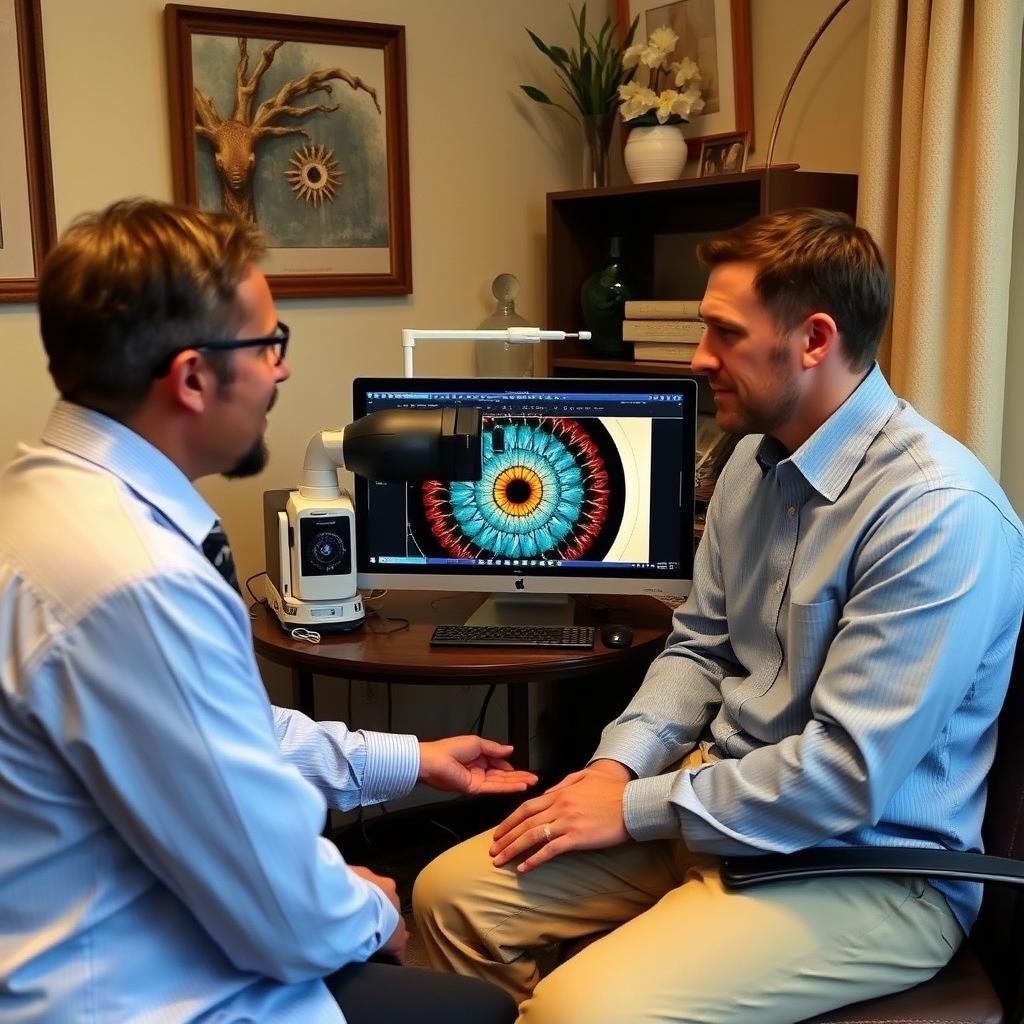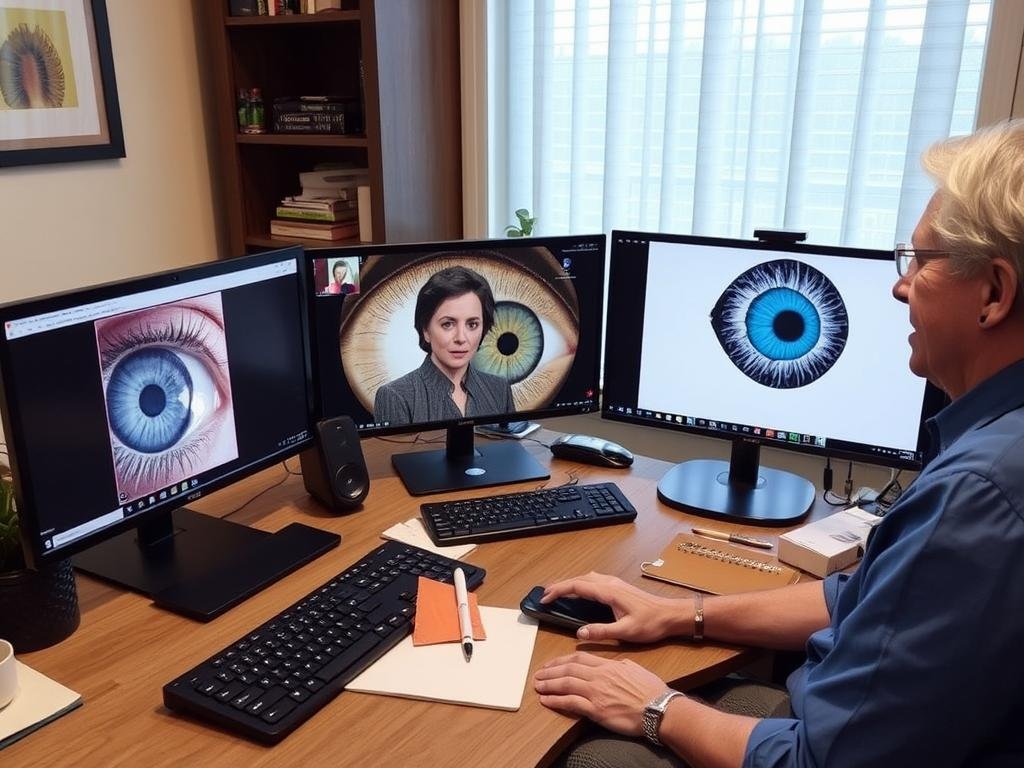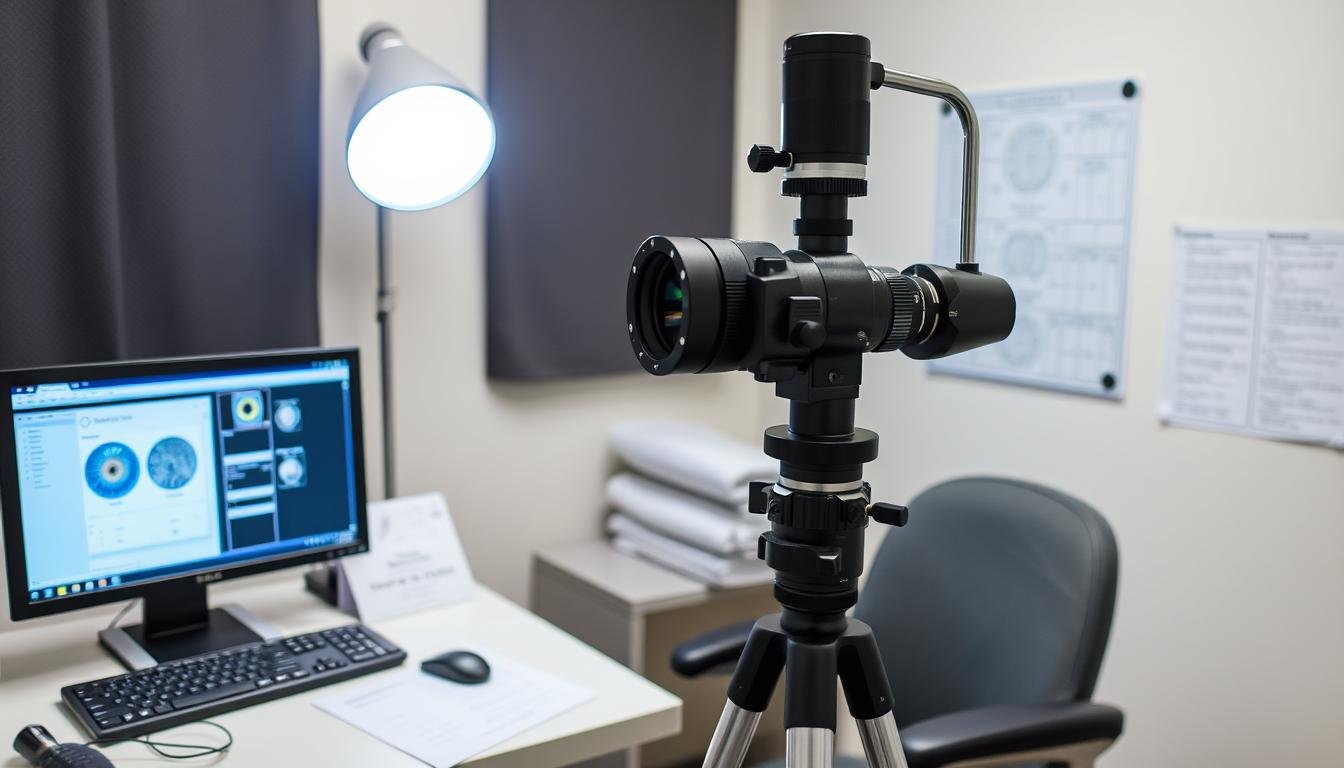The field of alternative health practices continues to grow globally, creating diverse opportunities for practitioners of iridology. As interest in holistic approaches to health assessment expands, qualified Iridologist professionals are finding increasing demand for their specialized skills. This comprehensive guide explores the financial prospects, career paths, and global opportunities available to those pursuing a career in this unique field of health analysis.
What Does an Iridologist Do?
An Iridologist is a specialized practitioner who analyzes patterns, colors, and other characteristics in the iris of the eye to identify potential health concerns and constitutional strengths and weaknesses. This alternative health practice is based on the theory that the iris contains detailed information about the body’s systems and overall health status.
The practice of iridology dates back to the 19th century, with Hungarian physician Ignaz von Peczely often credited as its founding father. Modern Iridologist professionals combine traditional techniques with contemporary technology to provide detailed iris assessments.
Unlike conventional medical practitioners, iridologists don’t diagnose specific diseases but rather identify areas of potential concern and constitutional tendencies that may contribute to health issues. This information helps clients make informed decisions about their health management approaches.
Core Responsibilities of a Certified Iridologist
- Conducting detailed iris examinations using specialized equipment
- Analyzing iris patterns, colors, and markings according to iridology charts
- Identifying potential areas of concern in various body systems
- Providing clients with information about constitutional strengths and weaknesses
- Suggesting lifestyle modifications and complementary approaches
- Maintaining detailed client records and tracking changes over time
- Continuing education to stay current with developments in the field
Discover Your Potential as an Iridologist
Interested in learning more about how to become a certified Iridologist? Contact our team for personalized guidance on training programs and career opportunities.
Call Now: +86 13-51090-74-01
Average Iridologist Salary by Country
Compensation for Iridologist professionals varies significantly based on location, experience, certification level, and practice setting. The following table provides an overview of average annual earnings across different countries.
| Country | Entry-Level Salary (USD) | Mid-Career Salary (USD) | Experienced Salary (USD) |
| United States | $35,000 – $45,000 | $55,000 – $75,000 | $80,000 – $120,000 |
| Australia | $40,000 – $50,000 | $60,000 – $80,000 | $85,000 – $110,000 |
| Germany | $30,000 – $42,000 | $50,000 – $70,000 | $75,000 – $95,000 |
| United Kingdom | $28,000 – $38,000 | $45,000 – $65,000 | $70,000 – $90,000 |
| Canada | $32,000 – $42,000 | $50,000 – $70,000 | $75,000 – $95,000 |
| Switzerland | $45,000 – $60,000 | $70,000 – $90,000 | $95,000 – $130,000 |
| New Zealand | $30,000 – $40,000 | $45,000 – $65,000 | $70,000 – $90,000 |
| Japan | $25,000 – $35,000 | $40,000 – $60,000 | $65,000 – $85,000 |
| Singapore | $35,000 – $45,000 | $55,000 – $75,000 | $80,000 – $100,000 |
| United Arab Emirates | $40,000 – $55,000 | $60,000 – $80,000 | $85,000 – $120,000 |

Factors Influencing an Iridologist’s Earnings
Professional Credentials
Certified iridologists with recognized qualifications typically command higher fees. Advanced certifications and continuing education can significantly increase earning potential.
Practice Setting
Iridologist professionals working in private practice often earn more than those employed in wellness centers or complementary health clinics, though the latter provide more stable income.
Geographic Location
Urban areas and regions with higher acceptance of alternative health practices generally offer better compensation opportunities.
Experience Level
As with most professions, experienced practitioners with established client bases can charge premium rates for their services.
How to Become a Professional Iridologist
The path to becoming a successful Iridologist involves several key steps, from education to certification and practical experience. While requirements vary by country, the following roadmap provides a general guide to entering this specialized field.
- Educational Foundation – Most successful iridologists begin with a background in health sciences, nutrition, or complementary medicine. While not always mandatory, this foundation provides valuable context.
- Specialized Training – Complete a comprehensive iridology certification program from a recognized institution. Programs typically range from 100 to 300 hours of study.
- Practical Experience – Gain hands-on experience through supervised practice, internships, or mentorship with established practitioners.
- Certification – Obtain certification from respected organizations such as the International Iridology Practitioners Association (IIPA) or the Guild of Naturopathic Iridologists.
- Continuing Education – Commit to ongoing learning to stay current with developments in the field and expand your expertise.

“The journey to becoming a skilled iridologist requires dedication to continuous learning. The iris reveals new insights with each client, making this career both challenging and deeply rewarding.”
– Dr. Jensen, Certified Master Iridologist
Ready to Start Your Iridology Career?
Our team can guide you through the certification process and help you build a successful practice as an Iridologist.
Email Us: Lucy@iriscope.org
Global Career Opportunities for Iridologists
Iridologist professionals can pursue diverse career paths across multiple settings worldwide. The growing interest in complementary health approaches has created expanding opportunities in various sectors.
Private Practice
Establish an independent practice offering iridology consultations, either as a standalone service or integrated with other complementary health modalities.

Wellness Centers
Join multidisciplinary wellness facilities where iridology complements other holistic health services such as nutrition counseling, acupuncture, and massage therapy.

Educational Institutions
Teach iridology principles and techniques at schools of natural medicine, holistic health academies, or continuing education programs for health professionals.

Top Industries Hiring Iridologists
Growing Sectors
- Integrative medicine clinics
- Holistic health retreats and spas
- Natural product companies (consulting)
- Online health platforms
- Corporate wellness programs
Challenging Sectors
- Conventional medical facilities
- Insurance-based practices
- Regions with strict regulations on alternative practices
- Areas with limited awareness of complementary health
- Highly competitive urban markets

Future Trends in Iridology Careers
The field of iridology continues to evolve, with several emerging trends shaping future career opportunities for Iridologist professionals worldwide.
Technology Integration
Advanced digital imaging and artificial intelligence are transforming how iridologists capture, analyze, and track changes in the iris. Practitioners skilled in using these technologies will have competitive advantages.

Telehealth Expansion
Remote consultations are becoming increasingly common, allowing iridologists to serve clients globally. This trend opens new markets but requires adaptation to digital communication and assessment methods.

Research and Validation
As interest in evidence-based complementary practices grows, iridologists who participate in or stay informed about research validating iridology techniques will be better positioned in the marketplace. The integration of traditional knowledge with contemporary research is becoming increasingly valuable.
Frequently Asked Questions About Iridology Careers
Is Iridologist a Lucrative Career?
The financial potential for an Iridologist varies widely based on location, business model, and client base. While not typically among the highest-paying health professions, established practitioners with strong reputations can earn substantial incomes, particularly when combining iridology with complementary services or product sales.
What Certifications Are Most Respected in the Field?
Certifications from the International Iridology Practitioners Association (IIPA), Guild of Naturopathic Iridologists (GNI), and Institute for Integrative Iridology (III) are among the most widely recognized. The value of specific certifications may vary by region, so research the most respected credentials in your target market.
Can Iridology Be Practiced Part-Time?
Yes, many practitioners begin part-time while maintaining other employment. This approach allows for gradual client base building and skill development. Some continue to practice part-time indefinitely, combining iridology with other complementary modalities or conventional healthcare roles.
What Equipment Is Needed to Start an Iridology Practice?
Essential equipment includes a high-quality iris camera or digital microscope, appropriate lighting, analysis software, reference materials, and basic office supplies. Initial investment typically ranges from ,000 to ,000 depending on equipment quality and practice scale.












